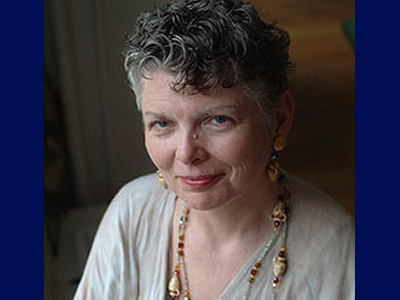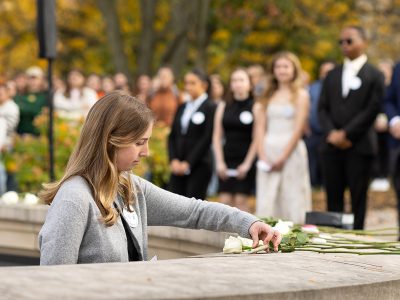In Memoriam: Minnie Bruce Pratt
In a welcome note on her website, Minnie Bruce Pratt invited visitors to make themselves at home. “I hope you enjoy all the connections here to art, politics, love and life,” she wrote. The retired Syracuse University professor built a career and a life of connections that advanced social justice causes and raised awareness of intersectional identities combining race, sexuality, gender and class.

Pratt died on July 2 at the age of 76. According to an obituary in The New York Times, her death was caused by glioblastoma. A few weeks before her death, her sons Ben and Ransom Weaver posted that she was “free of pain and surrounded by loving friends and family.” It was a poignant post by the sons she fought for but lost custody of after she came out as a lesbian in the mid-1970s. In North Carolina where she lived at the time, same-sex relationships were considered a crime.
Pratt was already a renowned feminist, poet, essayist and activist when she came to Syracuse University in 2005, with a joint appointment as a professor in the departments of writing and women’s studies. She began her Syracuse tenure teaching two courses: Nation, Sex, Sexuality: Critical Perspectives on Contemporary Life in the U.S. in the women’s studies program and Narratives of Power in the writing program. She was a key architect in the 2006 launch of the LGBTQ studies program in the College of Arts and Sciences.
Pratt also co-chaired and keynoted numerous academic conferences, served as an affiliated faculty member in disability studies, and lent her expertise to major programs and initiatives, including the University’s Future of Minority Studies Project and the Stone Canoe arts journal. At a retirement celebration to honor her decade of teaching at Syracuse, she was credited with helping the University be named as one of the nation’s top-50 LGBT-friendly institutions.
Pratt was born Sept. 12, 1946, in Selma, Alabama, and attended a segregated high school. She earned a B.A. from the University of Alabama in Tuscaloosa, where she was also Phi Beta Kappa, and a Ph.D. in English Literature from the University of North Carolina at Chapel Hill. Prior to Syracuse University, she taught at the University of Maryland-College Park and was the Jane Watson Irwin Chair of Women’s Studies at Hamilton College.
She was a member of Feminary, a feminist journal and collective. She co-authored “Yours In Struggle: Three Feminist Perspectives On Anti-Semitism and Racism,” chosen in 2004 as one of the 100 Best Lesbian and Gay Nonfiction Books of all time by the Publishing Triangle.
Pratt published eight books of poetry: “The Sound of One Fork,” “We Say We Love Each Other,” “Crime Against Nature,” “Walking Back Up Depot Street,” “The Dirt She Ate: Selected and New Poems,” “Inside the Money Machine” and “Magnified.” “Crime Against Nature,” on Pratt’s relationship to her two sons as a lesbian mother, was chosen as the Lamont Poetry Selection by the Academy of American Poets, an annual award given for the best second full-length book of poetry by a U.S. author. “Crime Against Nature” was also chosen as a New York Times Notable Book of the Year and given the American Library Association Gay and Lesbian Book Award for Literature. “The Dirt She Ate” received the 2003 Lambda Literary Award for Poetry and the Lucille Medwick Memorial Award from the Poetry Society of America. Pratt also received a Lillian Hellman-Dashiell Hammett award given by the Fund for Free Expression to writers “who have been victimized by political persecution.”
Pratt’s book of autobiographical and political essays, “Rebellion: Essays 1980-1991,” was a finalist in nonfiction for the Lambda Literary Awards. This volume includes her essay “Identity: Skin Blood Heart,” which was adopted for teaching use in hundreds of college courses and community groups.
Pratt described her own life with these words published on her website: “The struggle—for social justice and for workers and oppressed people, against racism and imperialism and for liberation for women and all gender and sexually-oppressed people—is my life.” And though she was determined through her work to educate and raise consciousness, that wasn’t enough: “We must act on what we understand to be unjust, or our hard-won consciousness is useless, nothing more than sand running back and forth through an hourglass.”
Pratt was predeceased by her longtime partner, author and trans activist Leslie Feinberg and is survived by her two sons, their partners and five grandchildren.


